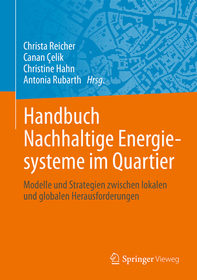
Making Truth in Early Modern Catholicism
Sorozatcím: Scientiae Studies;
-
20% KEDVEZMÉNY?
- A kedvezmény csak az 'Értesítés a kedvenc témákról' hírlevelünk címzettjeinek rendeléseire érvényes.
- Kiadói listaár GBP 42.99
-
20 538 Ft (19 560 Ft + 5% áfa)
Az ár azért becsült, mert a rendelés pillanatában nem lehet pontosan tudni, hogy a beérkezéskor milyen lesz a forint árfolyama az adott termék eredeti devizájához képest. Ha a forint romlana, kissé többet, ha javulna, kissé kevesebbet kell majd fizetnie.
- Kedvezmény(ek) 20% (cc. 4 108 Ft off)
- Kedvezményes ár 16 430 Ft (15 648 Ft + 5% áfa)
Iratkozzon fel most és részesüljön kedvezőbb árainkból!
Feliratkozom
20 538 Ft

Beszerezhetőség
Még nem jelent meg, de rendelhető. A megjelenéstől számított néhány héten belül megérkezik.
Why don't you give exact delivery time?
A beszerzés időigényét az eddigi tapasztalatokra alapozva adjuk meg. Azért becsült, mert a terméket külföldről hozzuk be, így a kiadó kiszolgálásának pillanatnyi gyorsaságától is függ. A megadottnál gyorsabb és lassabb szállítás is elképzelhető, de mindent megteszünk, hogy Ön a lehető leghamarabb jusson hozzá a termékhez.
A termék adatai:
- Kiadás sorszáma 1
- Kiadó Routledge
- Megjelenés dátuma 2025. december 1.
- ISBN 9781041182368
- Kötéstípus Puhakötés
- Terjedelem336 oldal
- Méret 234x156 mm
- Nyelv angol 700
Kategóriák
Rövid leírás:
This book investigates how early modern actors managed not to succumb to postmodern relativism, despite the increasing uncertainties and blatant disagreements about the nature of God, Man, and the Universe. It focuses on practices of negotiating credibility, not on conflicting notions of the content of truth.
TöbbHosszú leírás:
Scholarship has come to value the uncertainties haunting early modern knowledge cultures; indeed, awareness of the fragility and plurality of knowledge is now offered as a key element for understanding early modern science as a whole. Yet early modern actors never questioned the possibility of certainty itself and never objected to the notion that truth is out there, universal, and therefore safe from human manipulation. This book investigates how early modern actors managed not to succumb to postmodern relativism, despite the increasing uncertainties and blatant disagreements about the nature of God, Man, and the Universe. An international and interdisciplinary team of experts in fields ranging from the history of science to theology and the history of ideas analyses a number of practices that were central to maintaining and functionalizing the notion of absolute truth. Through such an interdisciplinary research the book shows how certainty about truth could be achieved, and how early modern society recognized the credibility of a wide plethora of actors in differentiating fields of knowledge.
TöbbTartalomjegyzék:
Bruno Boute, Andreea Badea, Marco Cavarzere, and Steven Vanden Broecke: A Product's Glamour: Credibility, or the Manufacture and Administration of Truth in Early Modern Catholicism, PART I. ACCOMMODATING, 1. Rudolf Schuessler: Scholastic Approaches to Reasonable Disagreement, 2. Marco Cavarzere: Regulating the Credibility of Non-Christians. Oaths on False Gods and Seventeenth-Century Casuistry, 3. Steven Vanden Broecke: How to be a Catholic Copernican in the Southern Netherlands, 4. Brendan Röder: Appearance and Essence. Speaking the Truth about the Body in the Early Modern Catholic Church, PART II. PERFORMING, 5. Bruno Boute: Saving Truth. Roman Censorship and Catholic Pluralization in the Confessionals of the Habsburg Netherlands, 1682-1686, 6. Birgit Emich: The Production of Truth in the Manufacture of Saints: Procedures, Credibility, and Patronage in Early Modern Processes of Canonization, 7. Andreea Badea: Credibility of the Past. Writing and Censoring History within Seventeenth-Century Catholicism, 8. Leen Spruit: Heresy and Error in the Assessment of Modern Philosophical Psychology, 9. Maria Pia Donato: Modern Philosophy and Ancient Heresies: New Wine in Old Bottles?, PART III. EMBEDDING, 10. Vittoria Fiorelli: Experiences are not a Successful Accompaniment toward the Knowledge of the Truth.' The Trial of the Atheists in Late Seventeenth-Century Naples, 11. Cecilia Cristellon: Choosing Information, Selecting Truth. The Roman Congregations, the Benedictine Declaration, and the Establishment of Religious Pluralism, 12. Rivka Feldhay: Disciplining the Sciences in Conflict Zones. Pre-Classical Mechanics between the Sovereign State and the Reformed Catholic Religion, Index
Több

Stamp Taxes 2012/13
40 608 Ft
35 330 Ft









